People love to watch films that depict the inner machine of Hollywood, how the glossy stars are made and what it takes to create these stars. The history element portraying the glory of Hollywood ofcourse makes it welcome entry at the Academy Awards. David Findcher’s Mank, Quentin Tarantino’s Once Upon a Time in Hollywood, and Damien Chazelle’s La La Land were nominated for ‘Best Picture’, to name a few. And then Chazelle decided to make Babylon (2022), which was predicted to be a huge Oscar hit.
Throw in Margot Robbie [nominations for three Academy Awards, six BAFTA Awards and four Golden Globe Awards] and Brad Pitt [two Academy Awards, two British Academy Film Awards, two Golden Globe Awards, and a Primetime Emmy Award] and what more did Chazelle need to make a hit. Yet, Babylon tragically failed to make an impression at the box office. Even though the film hit theaters during the holiday weekend, it only brought in a shockingly low $5.3 million. Chazelle’s latest cost reported $80 million plus to make and had a break-even point of some $250 million. Likewise, there have been many films such as Guzarish, Tubelight and Once Upon a Time in Mumbai from Bollywood, and Blackhat, Blade Runner, and Children of Men, from Hollywood that seemed perfectly good films to critics, but sadly bombed at the box office.
Life may not present one with so many options that you become spoilt for choice but with entertainment, there certainly are. Babylon was a film I had on my watch list for some time, because I am a sucker for watching the golden age of film making. Vikramaditya Motwane’s series Jubilee (2023) and Ryan Murphy’s Hollywood (2020) series are similar [and probably better] and my all-time favourites.
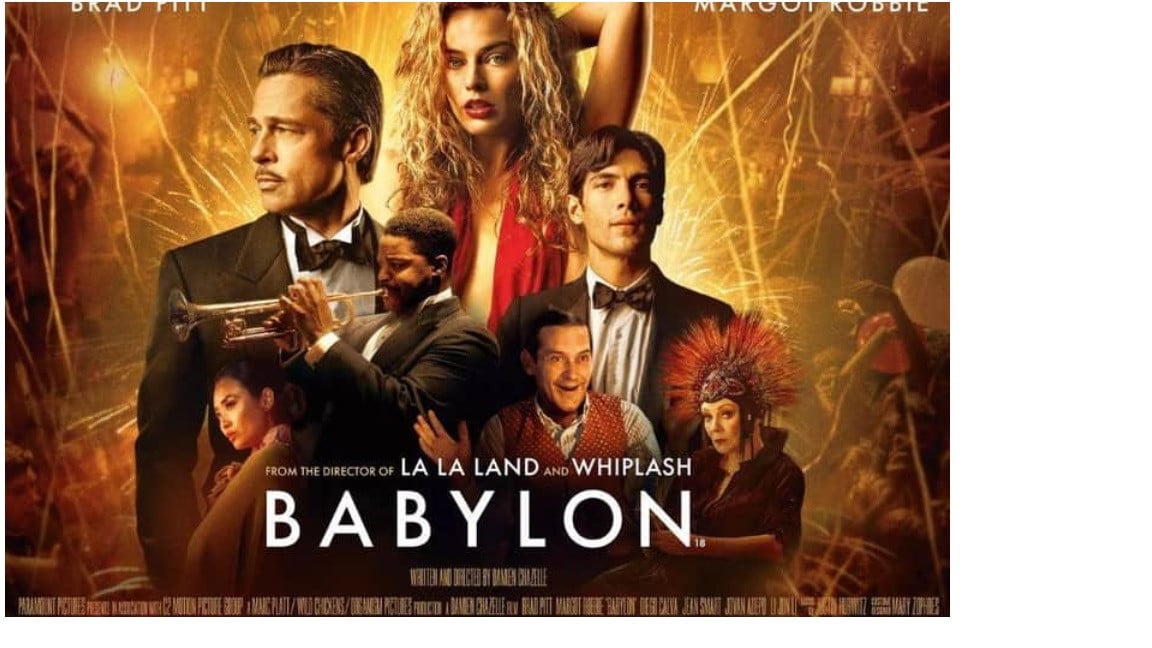
Chazelle, who became the youngest-ever director at 32 to receive the best director award for La La Land, tells the story of the ambition and excess of early Hollywood in Babylon. He takes us back to the roaring ’20s for a boisterous, extensive and rather explicit story of Hollywood ribaldry and the occasional film getting made in an era when the 1920s to 30s were in the transition from silent films to talkies. Tracing the rise and fall of multiple characters during an era of depravity, Chazelle’s film has a jazz soundtrack that is pulsatile and helps to propel the story for over three hours. The film is overstuffed, extreme, dynamic, violent, sexy, insane, surprising and at times repulsive. But was it worth my time? Yes, ofcourse. How else would I know how depraved that nascent film world was, how decadent, and so wild actually, that it seems to put the swinging sixties in a conservative hue.
In Bel Air, California, it is 1926 and Manny Torres (Diego Calva), the protagonist, is trying to transport an elephant to a movie studio executive’s mansion for the mother of all parties. Soon you see Manny driving a clunky truck with the actual, obese driver huffing and puffing to push it with the elephant pushing its snout in the driver’s cabin. The animal arrives where it needs to and it was probably in celebration that it decides to release a gush of poop all over the man. Gross? This is only the beginning. Wait till you see golden showers, next level debauchery, deep puke and blood because Chazelle revels in showing the unpleasant, repugnant and repulsive. He lingers on uncomfortable scenes far longer than any viewer would want to see. So for some its over-the-top atmosphere and direction will work, for others, it may not. I found it fascinating with a bit of cringe.
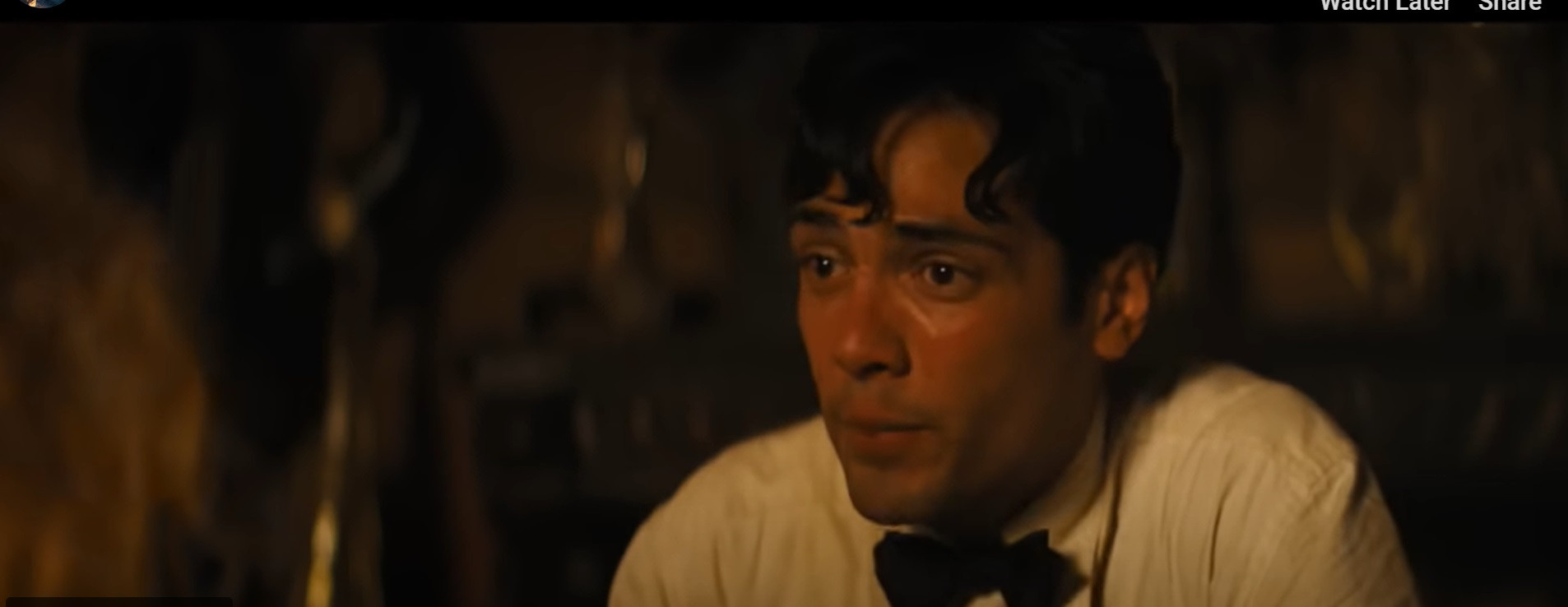
Even before its release, Babylon was seen as a bit of a gamble. It was considered too expensive, too long and too wearing as it focused on every terrible thing that happens in showbiz. Actors being mistreated by studios and then resorting to drug abuse, alcoholism, gambling, violence and suicide. To depict some of these complicated issues, the characters might appear excessively exaggerated as they go through some terrible and gruelling experiences.
Yet, I fell in love with the characters. I will remember them for a long time. We follow three main characters in Hollywood aging star Jack Conrad, rising star Nellie LaRoy, and Manuel Torres who dreams of doing work in the film industry. Each actor is perfectly cast and every character has an astonishing arc. Manny whose character is based on several Latino filmmakers and actors, dreams of working on a movie set, he is ready for anything even if his journey begins with elephant poop. He is the one who we see the film through as he's a pure soul who wants to make it big but eventually learns that in this business what you see is not what you always get. Calva’s eyes are so expressive, he doesn’t really need lines to express his feelings.
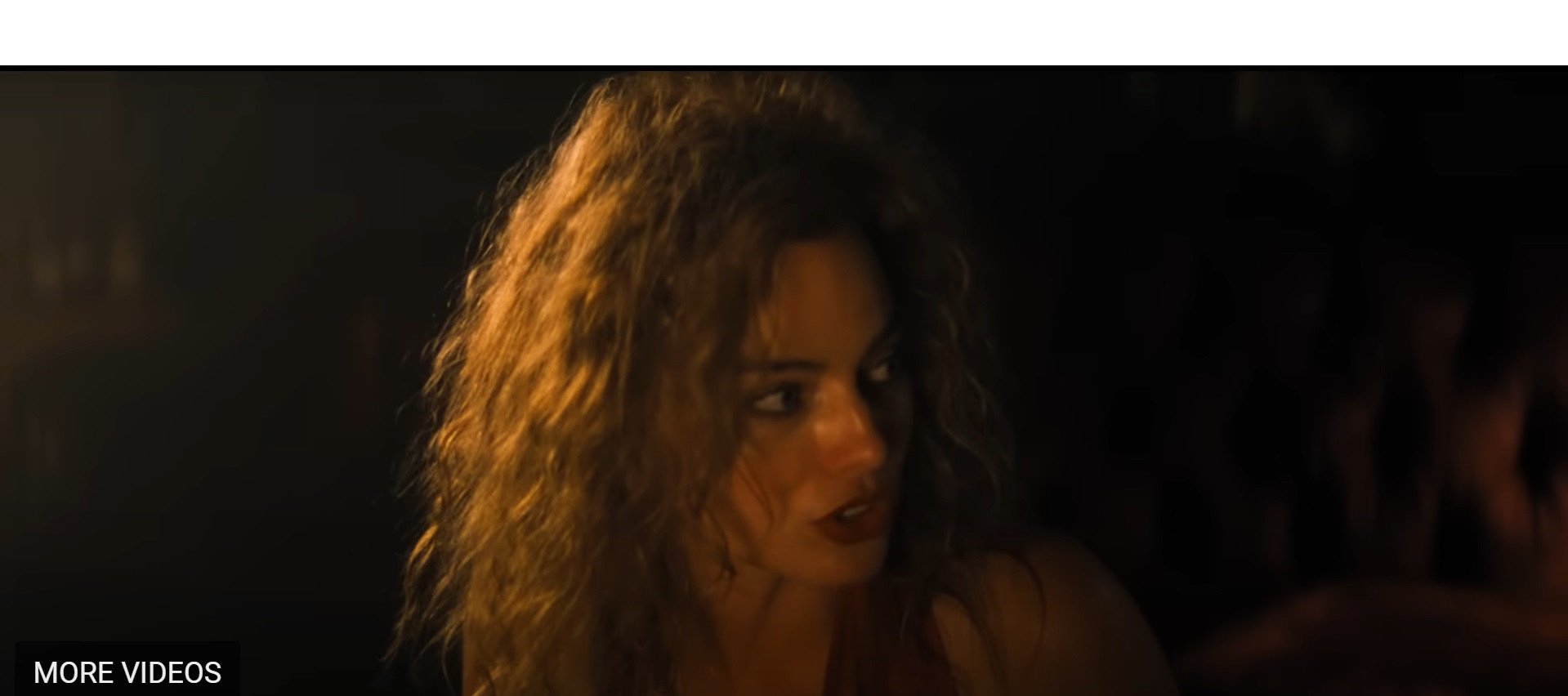
Nellie LaRoy (Robbie Margot) aspiring to be a star walks in to the studio exec’s party wearing lots of confidence and a slight red almost-nothing, which is a lot of clothes compared to the absolutely-nothing that the guests are wearing. Some wore hats and feathers and that’s about it! There are waterfalls of drink, and mountains of coke and clouds of smoke. Since there are limitations to writing, you can unleash your imagination just like Chazelle did.
Nellie’s character is heavily inspired by the original ‘It girl’ Clara Bow, with a touch of Joan Crawford. Bow had a meteoric rise and subsequent fall while cultivating a scandalous reputation as a wild party girl. Robbie is fantastic and magnetic as ever, drawing from and expanding upon her work in I, Tonya and The Wolf of Wall Street, and even a bit from her portrayal of the rebel-antihero Harley Quinn in the DC films.
The party is in full mad swing when Jack Conrad (Brad Pitt) arrives, arguing with his wife, who leaves him there, probably just as he planned it. How many wives he’s had, we don’t know, but we can assume it’s a lot, and we’ll meet a couple more before the film is over. Jack Conrad is an “uber movie star,” according to Chazelle, and it mirrors real 1920s actors such as John Gilbert Douglas Fairbanks, and Rudolph Valentino. Conrad's tragic death in response to Hollywood's transition to sound films reflects the struggles of many silent era stars. Conrad’s sensitive nature and humanness hiding behind the uber star is beautifully portrayed by Pitt, and his rapport and deep friendship with Lady Fay Zhu is touching.
Max Minghella, who plays producer and original movie mogul Irving Thalberg, is the only real-life character depicted in the film. Then there are secondary characters such as the trumpeter Sidney Palmer (Jovan Adepo), inspired by jazz bandleader and businessman Curtis Mosby. Quite magically he can focus on playing the trumpet amidst the chaotic sex-and-drugs madness, no wonder he makes it big in films, once silent movies were over and the sound era came in. The character of Lady Fay Zhu (Li Jun Li) a sultry chanteuse singer who prefers being with women is loosely based on Anna May Wong (1905-1961), the first Chinese-American actress in Hollywood whose career spanned both silent and sound films.
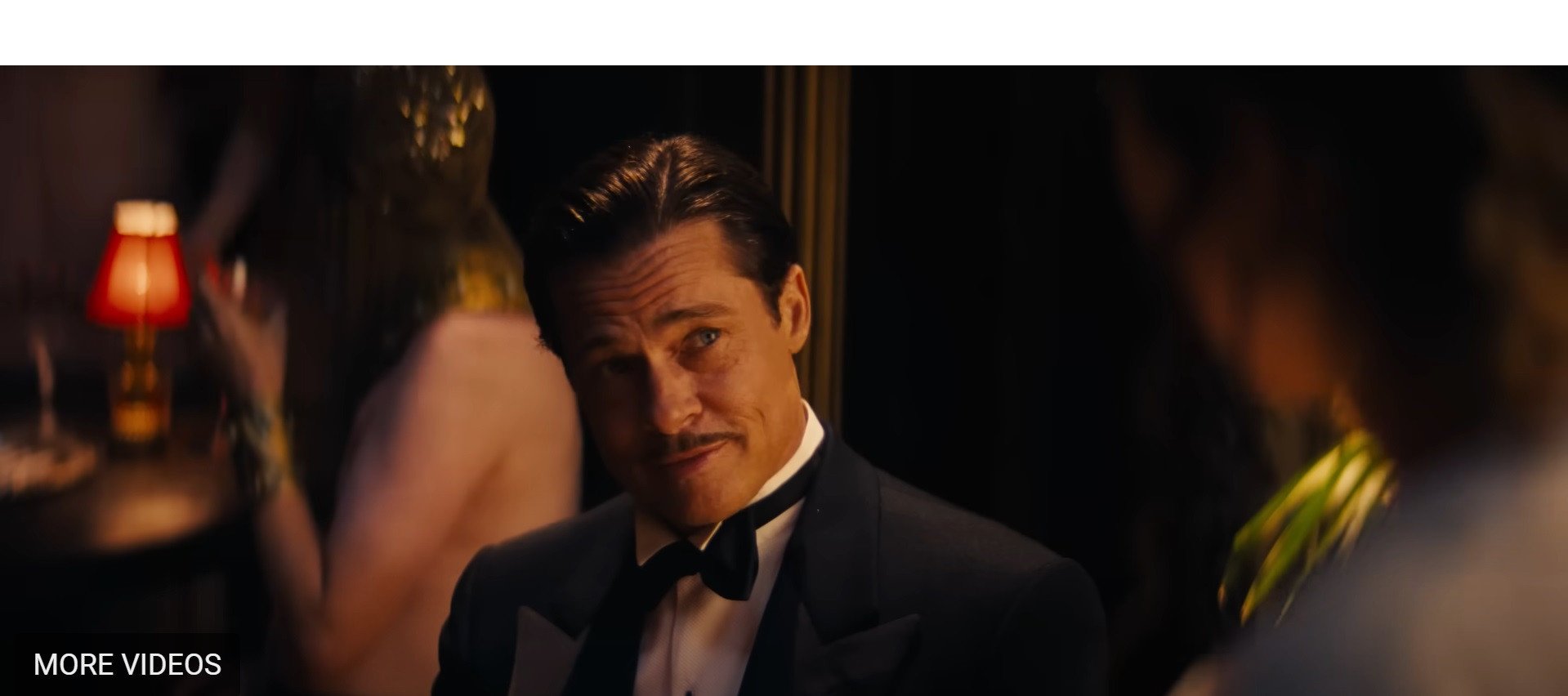 While Nellie lands a role thanks to her feisty “performance” at the party, Manny ends up being Jack’s assistant. They all arrive to a movie set in the middle of the desert, which gives new meanings to the word chaos. Eventually Nellie becomes a way more wilder and crazier upward-bound silent-movie star, Manny works his way up the studio ladder and Jack reaches the twilight of his career and becomes depressed. Lady Fay and Sidney are subjected to some cruel and eye-opening racism and homophobia. Other than these fabulous actors meticulously poured into their enrapturing roles, there is Jean Smart as a Hollywood gossip columnist, Tobey Maguire as a crime boss, Flea and Jeff Garlin as studio suits, Eric Roberts as Nellie’s freeloading father, and Olivia Wilde as one of Jack’s wives.
While Nellie lands a role thanks to her feisty “performance” at the party, Manny ends up being Jack’s assistant. They all arrive to a movie set in the middle of the desert, which gives new meanings to the word chaos. Eventually Nellie becomes a way more wilder and crazier upward-bound silent-movie star, Manny works his way up the studio ladder and Jack reaches the twilight of his career and becomes depressed. Lady Fay and Sidney are subjected to some cruel and eye-opening racism and homophobia. Other than these fabulous actors meticulously poured into their enrapturing roles, there is Jean Smart as a Hollywood gossip columnist, Tobey Maguire as a crime boss, Flea and Jeff Garlin as studio suits, Eric Roberts as Nellie’s freeloading father, and Olivia Wilde as one of Jack’s wives.
Several scenes and sequences in Babylon are absolutely stunning, like the weirdest opening party that you will have ever seen, the pandemoniacal movie sets in the desert, the trip to the grimiest sub-basement in Los Angeles that houses an angry crocodile, and the scene where Nellie pukes all over the L.A. blueblood party. These high-voltage sequences show Chazelle’s passion for filmmaking where he goes all out in detail, giving his actors full ground to perform, letting it fly, touch the zenith and land wherever it does as art that knows no boundaries. Somehow, the scenes become so real that you don’t just admire them, but smell, stare, cringe and puzzle over them as well.
Babylon is candid about being graphic, gross, dark and disgusting, but the cinematography is ridiculously great and extravagant in every frame. There is love, comedy, tragedy and satire. It is pacey but probably it needed sharper and more conservative editing to cut it to much lesser than its 189 minutes.
“I wanted to look under the microscope at the early days of an art form and an industry, when both were still finding their footing,” Chazelle said in commentary included in the film’s production notes. “And, on a deeper level, I liked the idea of looking at a society in change.”
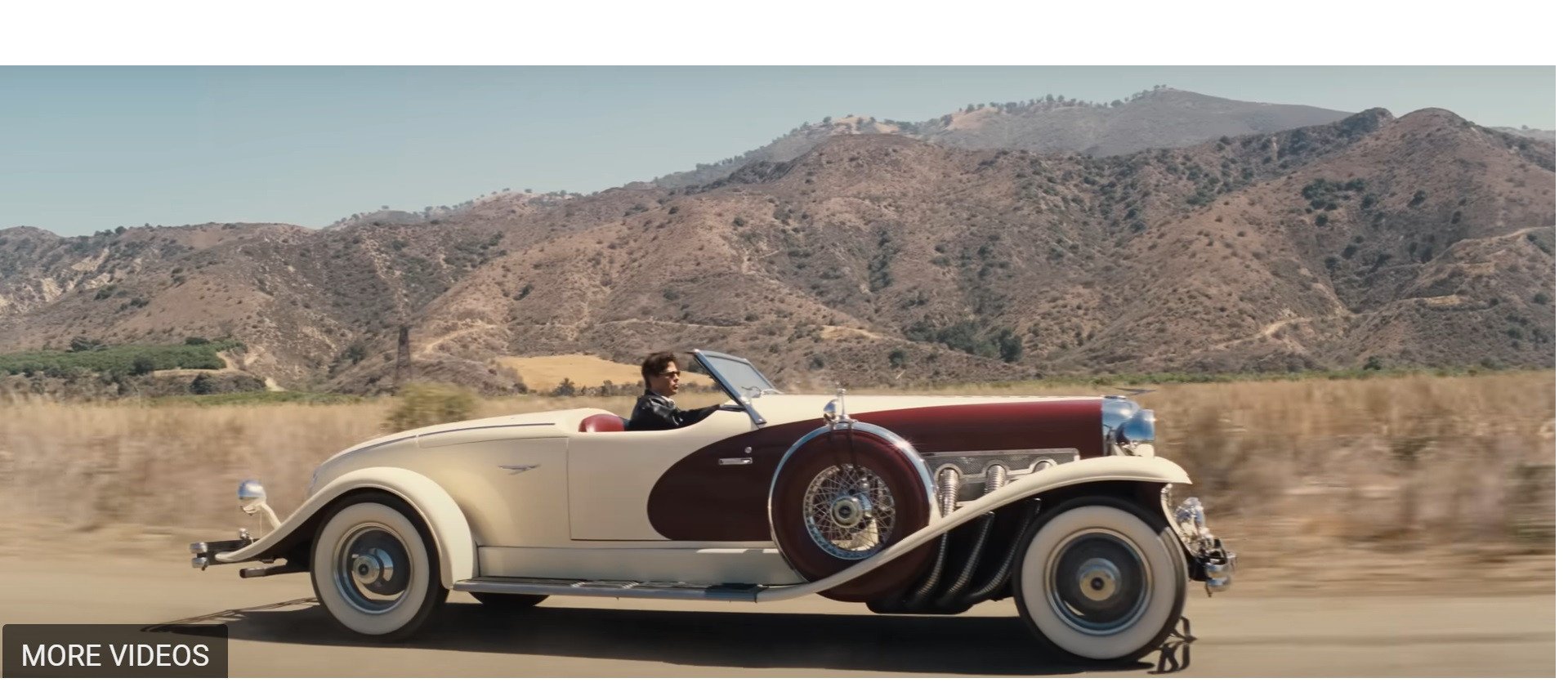 Those indeed were flawed times for Hollywood, where people were going from being dirt poor to being the biggest and sparkliest movie stars in the country... and if they were 20… they were dead by the time they were 25 or 30.
Those indeed were flawed times for Hollywood, where people were going from being dirt poor to being the biggest and sparkliest movie stars in the country... and if they were 20… they were dead by the time they were 25 or 30.
In Chazelle’s Babylon, the title refers to the ancient city of Babylon, not only known as a centre of human inquiry, knowledge, and pluralism, but also for oppression and tyranny, for evil and Satan, and for decadence of a kind that combines ecstasy and desperation. Knowing that, you might not get fixated on a lot of factors in the film that raise eyebrows or create frowns. Mind you, in between the raised eyebrows and frowns, there is also blinkless gawking that the film commands.
Chazelle may have failed to capture the essence of La La Land, but I find Babylon truly incredible and it will remain on my list of strangely unforgettable films for a long, long time to come.
